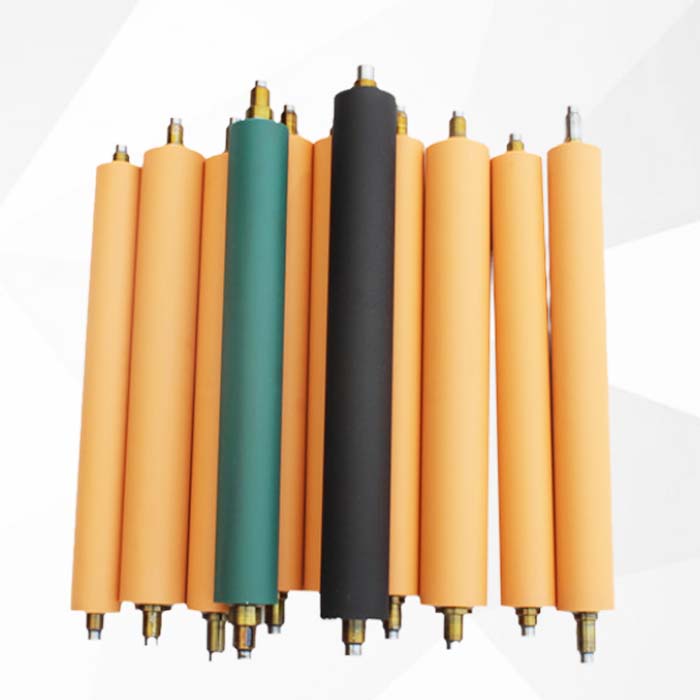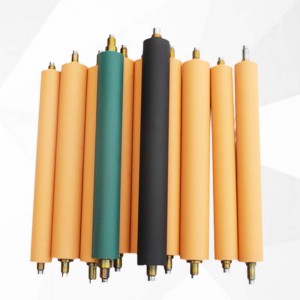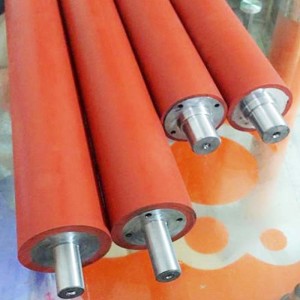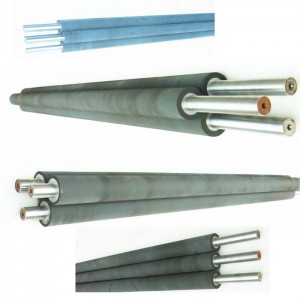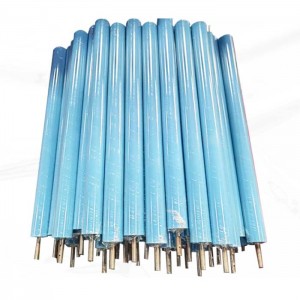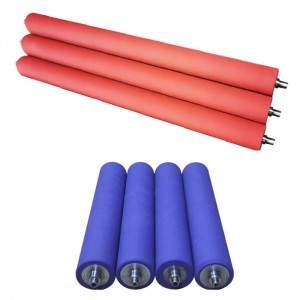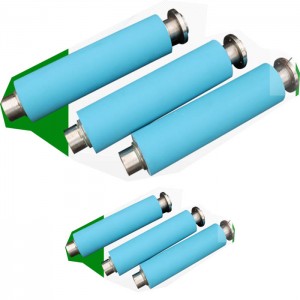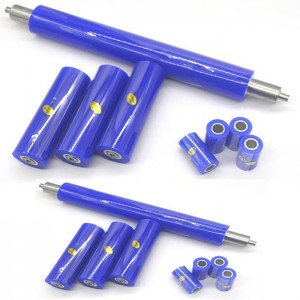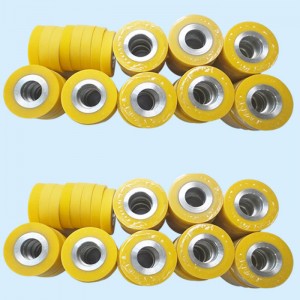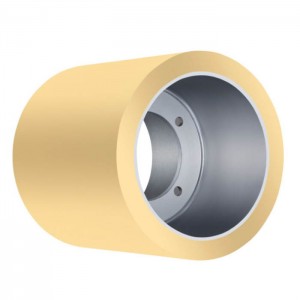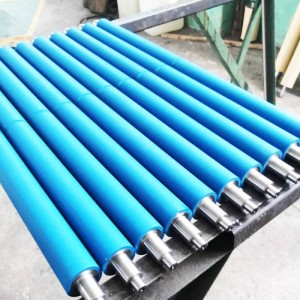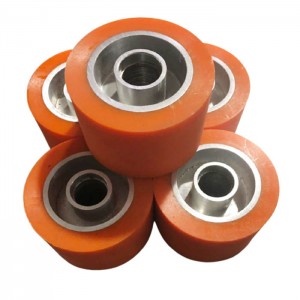Ink rubber roller manufacturers customized water ink rollers
Rubber roller production requirements:
1. After grinding, the difference in diameter of the rubber rollers on the same trolley should not exceed 0.03 mm;
2. Master the grinding time, the rubber roller with a long grinding time has a smooth surface and a small friction factor, which is not good for fiber holding; on the contrary, the surface roughness of the rubber roller with a short grinding time is large, which affects the quality of the yarn;
3. The grinding amount should be controlled within 0.15 mm. The amount of grinding is large, the pressure of the rubber roller is large, and the heat is generated, which is easy to burn the surface of the rubber roller and affect the performance of the rubber roller;
4. In the production process of the treatment-free rubber roller, it is necessary to consider whether to carry out light treatment according to the variety. In the test, the yarn quality of the treatment-free cots has been improved after light treatment, but the time of light treatment should be properly controlled. From the test data, the surface roughness of the cots is not as small as possible, and should be controlled within 0.5 μm. Of course, the surface roughness value should also be determined according to the fiber properties and the number of types spun.
Our company adheres to the standard of "green, environmental protection and energy saving", and adheres to the development concept of "promoting technological progress with technological innovation and winning market users with product innovation". We sincerely hope to join hands with new and old customers to create a better future. !




Inspection after the rubber roller is made:
After the production of the rubber rollers, the rubber rollers should be inspected batch by batch according to the technical standards of the fine grinding rubber rollers before getting on the car. During the inspection process, the rollers whose diameter and eccentricity exceed the allowable limit should be resolutely removed, sand holes and air holes are not allowed in the yarn guide stroke, and the paint head marking should be correct. The appearance of the finished rubber roller should be thorny, not rough, smooth and delicate.
DECAI rubber rollers Features:
1. Lower viscosity;
2. The cured product has a low shrinkage rate, less than 0.1%, and has the advantages of good water and moisture resistance, and maintains good elasticity at -60 degrees Celsius to 500 degrees Celsius: the temperature resistance of products with solid rubber as raw materials can reach 1200 degrees Celsius;
3. Good stability, without adding curing agent (sealed at room temperature of 25 degrees Celsius, no moisture, no high temperature), it can be placed for at least 1 year without deterioration, and the roller shaft head and bearing should be well lubricated. We know that the accuracy of the roller head and bearing directly affects the effect of ink transfer and ink distribution. If the poor lubrication causes the roller head, bearing wear and clearance, it will inevitably lead to the disadvantage of uneven printing ink color. At the same time, it will also cause printing bar marks due to bad conditions such as jumping glue and slipping glue. Usually, lubricating oil should be added to the shaft head and bearing of the rubber roller frequently to prevent the normal use of the rubber roller from wear and tear of the machine parts and ensure the printing quality. In the offset printing process technology, the key is the control of the balance of the water and ink paths, and the balance of ink and water depends on the key components of the rubber roller and the ink roller, whose quality can directly affect the quality of the product. Gravure, letterpress, flexo even more so.





